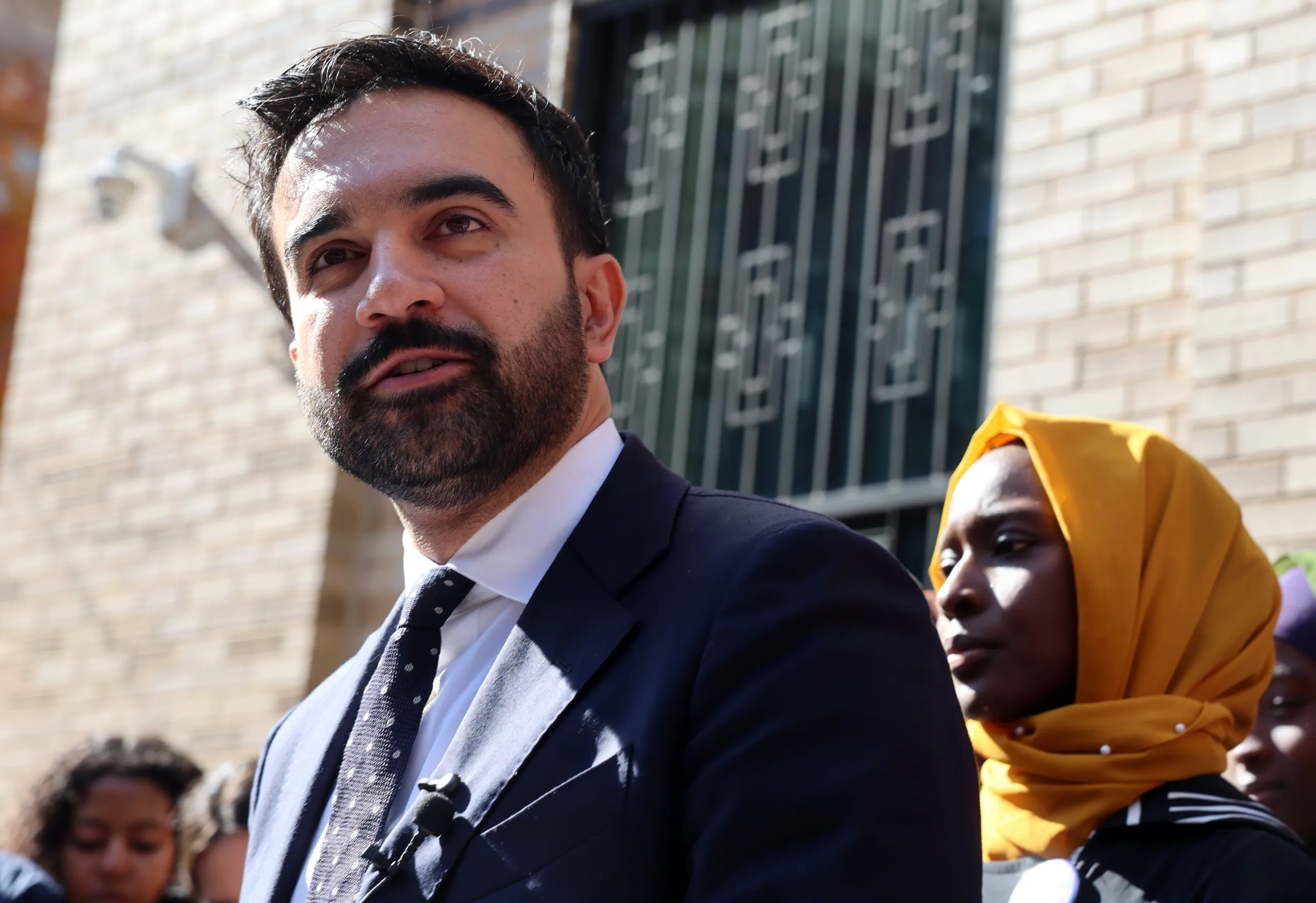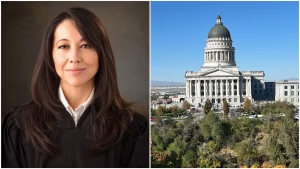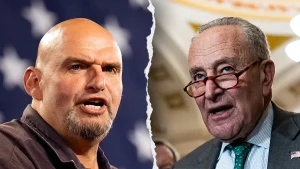A Decision That’s Stirring Up Trouble in New York
New York City is used to political chaos. But even longtime observers didn’t expect the latest move coming out of the new administration. A key adviser is stepping into a top role at City Hall, and her arrival has already raised serious concerns among police, union leaders, and everyday New Yorkers who depend on safe streets.
The appointment didn’t come from nowhere. But the reaction shows how deeply divided the city remains over crime, policing, and the growing influence of far-left organizations. The new mayor-elect, Zohran Mamdani, has brought back a familiar figure from his campaign, and many say she’s the driving force behind some of his most controversial policies.
And now she’s stepping into power again.
The Architect Behind a Deeply Debated Agenda
Her name is Elle Bisgaard-Church. She served as Mamdani’s chief adviser on the campaign. Now she’s returning to City Hall in the same role. And she’s bringing with her a set of ideas that critics say could permanently reshape public safety in the nation’s largest city.
Her signature work? A plan to replace police officers with teams of social workers for non-violent 911 calls. The proposal has been debated for months. Many say it would weaken law enforcement. Others argue it would send untrained civilians into unpredictable situations.
The cost? Around $1.1 billion.
That’s the estimate listed on Mamdani’s own campaign documents.
Supporters say the plan will reduce tensions between police and the public. But opponents warn it will put social workers into dangerous environments. And the NYPD has already signaled how these plans could affect morale.
A New York Adviser With California Roots
Bisgaard-Church isn’t a typical New York political figure. She’s a California native with degrees from Swarthmore College and Columbia University. Her background is not in policing. It’s in nonprofit work and activism. She has close ties to the Democratic Socialists of America. And she helped shape their strategy guides, political messages, and their growing network across the city.
Her critics point out the same problem: she brings ideology, not experience.
But her supporters see something different. They view her as the intellectual engine behind Mamdani’s campaign. They say she built the message, the meetings, the policy outlines, and the coordination with local DSA chapters. Those connections helped Mamdani win the mayoral race. And now she’s being rewarded with one of the most influential positions in the city.
Consultations, Committees, and Quiet Influence
During the campaign, Bisgaard-Church held private meetings with public safety officials, mental health experts, and even retired NYPD Chief Rodney Harrison. She gathered data. She collected testimony. She shaped the new administration’s public safety proposal.
Yet for all of her involvement, she rarely speaks to the press. She keeps a low profile. Her influence is felt mostly behind the scenes. That makes her even more controversial. New Yorkers don’t know her. They’ve never voted for her. But she now holds tremendous influence over public policy.
And it comes at a moment when the city is struggling with crime, homelessness, and a police force on the brink of collapse.
A Political Vision Driven by Anger and Activism
For Bisgaard-Church, the motivation isn’t hidden. She has spoken openly about her political convictions. In interviews, she says she feels “deeply ashamed” that people sleep on the streets. She blames political choices. And she sees the DSA as the movement with the moral outrage necessary to force change.
That worldview drives her decisions. And it shapes Mamdani’s agenda.
The problem, critics say, is that moral outrage doesn’t pay for billion-dollar programs. And it doesn’t keep subway stations safe.
Why the NYPD Is Watching Closely
The NYPD is losing officers. Not slowly. Rapidly.
Police Pension Fund data shows a sharp spike in resignations. In October alone, 245 officers left the force. That’s a 35% jump compared to the year before.
Some call it a coincidence. Others call it a warning. Many insiders say the exodus ties directly to the expectation that Mamdani would win—and bring his anti-police policies with him.
A police union source put it bluntly:
“If Commissioner Tisch leaves, expect a surge. If she stays, maybe the numbers slow down. Maybe.”
Right now, no one knows what she will do.
The mayor-elect has criticized the NYPD repeatedly. He has said policing needs to be “reimagined.” Officers fear cuts, pullbacks, and changes in authority. They worry about losing backup, losing responsibility, and losing respect. And many say they will not wait around to see how far this administration tries to go.
The DSA’s Growing Footprint
New York’s DSA chapter has become one of the strongest in the country. It has money. It has organizers. It has elected members who hold actual power. But what it hasn’t had—until now—is a direct line into City Hall.
Bisgaard-Church gives them that line.
She coordinated regular meetings between the campaign and DSA leaders. She helped shape their legislative strategy. She even co-authored their internal documents on political engagement.
Now, as Mamdani’s chief adviser, she will be central to decisions on budgeting, public safety, and administration priorities.
That makes this more than a simple appointment. It’s a shift in how New York will be governed.
And a lot of people aren’t comfortable with that.
A City at a Crossroads
New York is dealing with rising crime. Crowded shelters. A shrinking police force. Budget strain. And a population that’s already frustrated with safety issues on trains, buses, and sidewalks.
So when the new administration brings in someone who openly supports a plan to pull police out of certain emergency responses, many New Yorkers see danger, not reform.
Some lawmakers warn the city could repeat the same mistakes made during the “defund the police” movement of 2020. Businesses left. Families left. Crime rose. And the city became a national warning sign.
Now critics worry those days might return. And they fear this administration will push New York even farther left than ever before.
Supporters Cheer, Critics Brace Themselves
Supporters of Bisgaard-Church say she will push City Hall to rethink public safety in a more humane way. But critics say the plan ignores the real world.
Social workers aren’t trained to handle violent incidents. Even “non-violent” calls can turn violent in seconds. But the proposal still aims to put them in those situations.
Officers say it’s reckless. Many residents agree.
Yet the administration is pushing ahead.
And with Bisgaard-Church now holding a powerful advisory role, the push may accelerate.
Where This All Leads
New Yorkers are bracing for big changes. Some want them. Many do not. But one thing is clear: this appointment marks the beginning of a new chapter—one where activists hold more influence than ever before.
The concerns aren’t coming from political opponents alone. They’re coming from police leaders, union members, and community figures who simply worry about safety.
And if the NYPD exodus continues, New York could find itself in a dangerous position.
The city will soon learn whether the new team can balance ideology with reality. It will also learn whether the changes bring a safer city—or a more chaotic one.

Emily Johnson is a critically acclaimed essayist and novelist known for her thought-provoking works centered on feminism, women’s rights, and modern relationships. Born and raised in Portland, Oregon, Emily grew up with a deep love of books, often spending her afternoons at her local library. She went on to study literature and gender studies at UCLA, where she became deeply involved in activism and began publishing essays in campus journals. Her debut essay collection, Voices Unbound, struck a chord with readers nationwide for its fearless exploration of gender dynamics, identity, and the challenges faced by women in contemporary society. Emily later transitioned into fiction, writing novels that balance compelling storytelling with social commentary. Her protagonists are often strong, multidimensional women navigating love, ambition, and the struggles of everyday life, making her a favorite among readers who crave authentic, relatable narratives. Critics praise her ability to merge personal intimacy with universal themes. Off the page, Emily is an advocate for women in publishing, leading workshops that encourage young female writers to embrace their voices. She lives in Seattle with her partner and two rescue cats, where she continues to write, teach, and inspire a new generation of storytellers.









